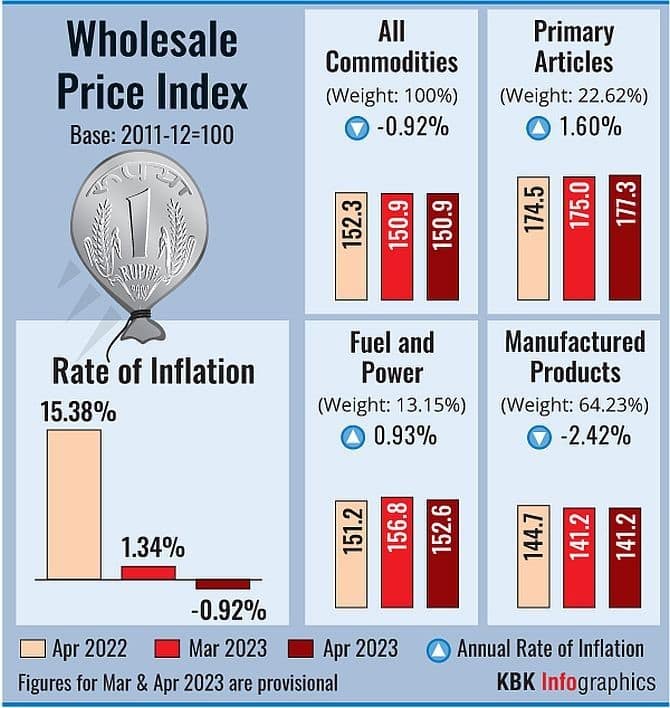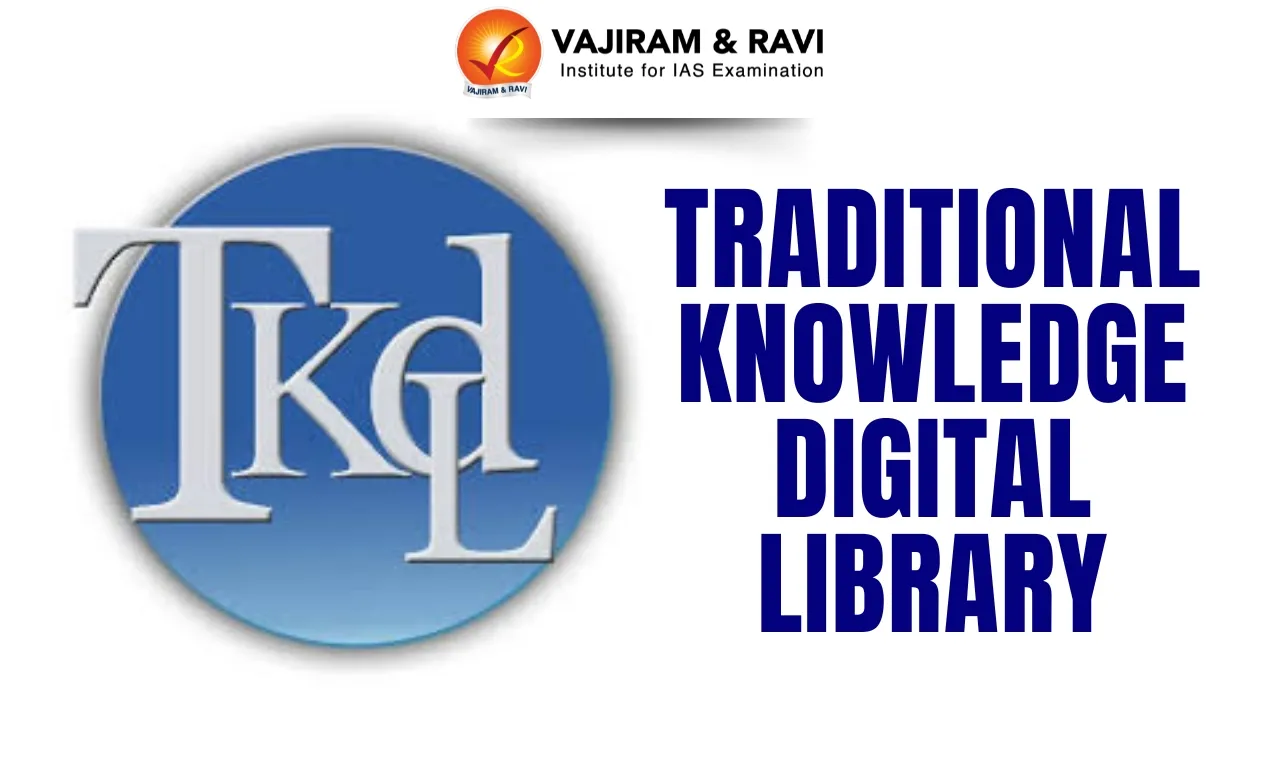Why in News?
- According to data released by the Ministry of Commerce and Industry, INFLATION RATE based on Wholesale Price Index (WPI) fell to a near three-year low of (-) 0.92 % in April, slipping into negative territory for the first time in 33 months.
- Causes:
- A high base effect along with moderation in global commodity prices reflected in easing of food, fuel and other input costs.
- The decline in the WPI inflation rate in April 2023 was primarily contributed by fall in prices of basic metals, food products, mineral oils, textiles, non-food articles etc.
What Is a Wholesale Price Index (WPI)?
- Wholesale Price Index (WPI) represents the price of goods at a wholesale stage i.e. goods that are sold in bulk and traded between organizations instead of consumers.
- The index has a total of 697 items, including Primary Articles (117), fuel and power (16), and Manufactured Products (564).
- The percentage increase in WPI over a year gives the rate of inflation for that year.
- Currently, the base year of WPI is 2011-12.
- WPI is used as an important measure of inflation in India.
What is A Base Year?
- The inflation rate is calculated based on indices — WPI and CPI. The indices are set to 100 in a particular year and the year is the base year.
- For instance, a basket of goods was Rs 2 lakh in the base year and the index is set as 100 in that year. Now, if the price of the basket increases to Rs 2.2 lakh in the next year, the index will change to 110 that year. The change in the index value from 100 to 110 indicates 10 per cent inflation.
What is a Base Effect?
- The base effect refers to the effect that the choice of a basis of comparison or reference can have on the result of the comparison between data points.
- It often involves the use of some kind of ratio or index value between two points in a time-series data set and can also apply to cross-sectional or other types of data.
Q1) Who controls inflation in India?
Reserve Bank of India is the authority to control inflation through monetary policies which it does by increasing bank rates, repo rates, cash reserve ratio, buying dollars, regulating money supply and availability of credit.
Last updated on February, 2026
→ UPSC Notification 2026 is now out on the official website at upsconline.nic.in.
→ UPSC IFoS Notification 2026 is now out on the official website at upsconline.nic.in.
→ UPSC Calendar 2026 has been released.
→ UPSC Final Result 2025 is expected to be released in the second week of April 2026.
→ Check out the latest UPSC Syllabus 2026 here.
→ Join Vajiram & Ravi’s Interview Guidance Programme for expert help to crack your final UPSC stage.
→ UPSC Mains Result 2025 is now out.
→ UPSC Prelims 2026 will be conducted on 24th May, 2026 & UPSC Mains 2026 will be conducted on 21st August 2026.
→ The UPSC Selection Process is of 3 stages-Prelims, Mains and Interview.
→ Prepare effectively with Vajiram & Ravi’s UPSC Prelims Test Series 2026 featuring full-length mock tests, detailed solutions, and performance analysis.
→ Enroll in Vajiram & Ravi’s UPSC Mains Test Series 2026 for structured answer writing practice, expert evaluation, and exam-oriented feedback.
→ Join Vajiram & Ravi’s Best UPSC Mentorship Program for personalized guidance, strategy planning, and one-to-one support from experienced mentors.
→ Check UPSC Marksheet 2024 Here.
→ UPSC Toppers List 2024 is released now. Shakti Dubey is UPSC AIR 1 2024 Topper.
→ Also check Best UPSC Coaching in India




















